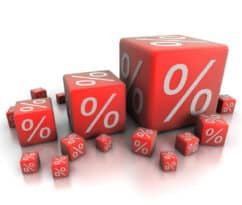When buyers and investors begin their property search for a home in Israel, they should be aware of the closing costs and expenses that will be incurred. While most people have a specified budget for their purchase, they are strongly encouraged to assume that a further 10 to 12% of the purchase price will be required for the various taxes, fees, and expenses that are part and parcel of a real estate transaction in Israel.
There are generally 12 additional items to consider when calculating the closing costs of buying a home in Israel:
1) Mas Rechisha – a purchase tax that must be paid within 60 days of signing the contract on a property in Israel. Click here to use our Mas Rechisha Calculator in English.
2) Legal fees – Real estate attorneys usually charge between 0.5-1.5% + VAT on the purchase price. If you are buying a new property in Israel from a developer (or ‘kablan’), it is not uncommon for you to have to pay the kablan’s legal fees as well. (By law, if the price of the apartment is less than 4,642,750 shekels, the maximum their lawyer may charge is either around 5,374 NIS plus VAT or 0.5% of the purchase price of the property plus VAT, whichever is lower.)
3) Agent’s commission – real estate agents in Israel usually charge the buyer 2% + VAT of the purchase price.
4) Inspection – in the case of a pre-owned property, it is advisable to have a professional engineer inspect the property before purchasing. The fee, which depends on the size of the property and on whether the report is written or verbal, usually ranges between 3,000 and 6,000 NIS plus VAT.
5) Foreign currency transfers and conversions – when buying real estate in Israel, payments must usually be made in Shekels, therefore if you are using foreign currency to pay for the property, you will have to transfer the money and convert it into Shekels. This may incur fees by both the ‘transmitting’ bank and the ‘receiving’ bank or forex company (most charge commissions for receiving foreign currency into a Shekel account, usually up to 0.5% incl. VAT). In addition, you will be charged for converting the foreign currency into Shekels and you should bear in mind that when the bank buys your foreign currency they do not use the Representative Rate of Exchange that you may see published by the Bank of Israel, but rather a lower rate.
Since the purchase price is typically fixed in Shekels at the signing of the contract, there is a risk (as well as a potential windfall) if foreign currency will be used to pay for the property. Any fluctuation in the value of the foreign currency that you are using, relative to the Israeli Shekel effectively, translates into a change in the purchase price.
6) Inflation – when you buy a new home from a Kablan, the purchase price is usually linked to a measure of inflation, either the C.P.I (‘Madad’) or the Construction Cost Index. This means that any outstanding amount due to the builder will be linked to the index specified in the contract. (When linked to the Construction Cost Index, only the portion of the price that is attributable to the construction itself may be linked, but no more than 40% of the apartment price.) When the index rises, so does the price of the apartment, however, if the index decreases, the price of the apartment will not fall since the index can never decrease below the base index listed in the contract.
7) Mortgage fees – when you take a mortgage in Israel, the bank will usually charge a fee for ‘opening a file’. This fee can range between 0.25% and 0.5%. (Like everything in Israel, this fee is negotiable!). The bank may also require a “shamai” (a real estate appraiser in Israel) to determine whether or not the purchase price of the property reflects the realistic value of the home, and thus whether the mortgage could be recovered in the case of a foreclosure. The shamai is paid by the individual taking the mortgage, not the bank. The fee can range between 2,000-4,500 NIS plus VAT. Other smaller costs may be applicable when taking a mortgage e.g. registration, Power of Attorney, etc. These may amount to a few hundred shekels.
If you choose to work with a mortgage broker, you can expect to pay between 1 to 1.25% plus VAT (based on the loan size).
8) Builder’s fees – When purchasing from a builder there may be other fees that amount to a few thousand shekels such as a measurements fee and a fee for the preparation of the plans.
9) Rent or mortgage payments– you will have to live somewhere until you take possession of your new home, so don’t forget to factor in monthly rent and/or mortgage payments for any overlaps.
10) Moving costs – depending on how much stuff you have and how far you are moving from your previous residence, moving costs in Israel can range between 4,000 to 15,000 Shekels.
11) Utility transfers or hook-ups – when you move into a new home, you will need to pay for the utility hookups and meters. If a gas meter is required, this could amount to 10,000 shekels in total. In the case of a pre-owned home, you will have to pay a small fee for the transfer of utility bills (arnona, gas, water, electricity) into your name.
12) Home improvements and renovations – the home you buy in Israel may be perfectly suitable to bring your furniture and personal belongings and settle right into, however, in most cases, some attention is necessary before moving in. This may include kitchen upgrades, air-con installation, bathroom vanities, bedroom closets, renovations, garden and landscaping, painting, light fixtures, etc. In some cases, an interior designer, architect, and/or engineer may be brought in. The list of possibilities is endless; it all depends on what you need and how big a budget you have.
*Value Added Tax (VAT) is 17%.
Everybody wants a Buyitinisrael, now more than ever before.
Whether you’re thinking about Aliyah, looking for a home or a haven, or want to support the Israeli economy, drop us a line, when you’re ready to talk. Whatever the reason, Buyitinisrael.







